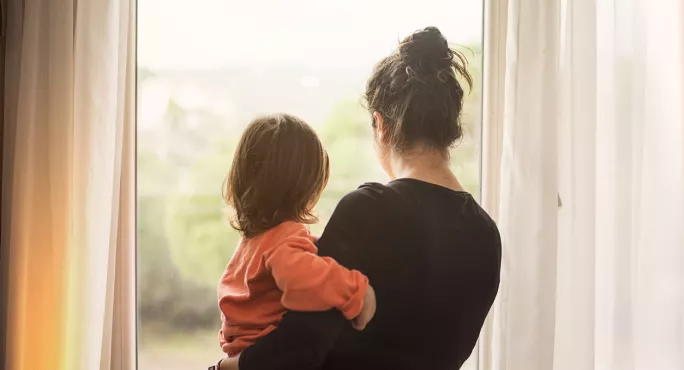- Home
- Most SEND pupils didn’t have lockdown risk assessment
Most SEND pupils didn’t have lockdown risk assessment

The majority of parents of children with special educational needs or disabilities (SEND) said their child’s school failed to carry out a risk assessment during the Covid-19 lockdown, a new survey has found.
Schools were expected to carry out these assessments for every child with an education, health and care plan when schools were partially closed because of the coronavirus.
This assessment was supposed to involve working with parents to establish if a child needed to attend school or could have their needs met at home during the lockdown.
SEND: System not working well admits DfE
Exclusive: Two-thirds of latest SEND inspections find failings
EHCPs: Everything you need to know about education, health and care plans
However, a survey carried out by the Special Needs Jungle website has shown that more than half of the parents who responded (51 per cent) said that no such assessment had taken place.
Another 24 per cent said that they did not know if there had been a risk assessment.
A report on the survey findings shows that another 9 per cent said that an assessment had been scheduled but had not happened by the time the survey was carried out last month.
Only 23 per cent of the participants were confident that their child or young person had had a risk assessment about returning to their school.
And the majority of these (59 per cent) said that they were not involved in this process.
The report adds: “This means, shockingly, only 9 per cent of respondents’ children had both undergone a risk assessment and been involved as a family in co-producing it.”
The survey also found that:
- 68 per cent of respondents really struggled to educate their child at home.
- 28 per cent of surveyed parents agreed that their child’s educational placement had provided very good support during lockdown. More than half said their school had not provided good support at all.
- Less than one in five (18 per cent) reported their child or young person’s school or college had offered them the SEND provision they needed in order to complete their work.
- Fewer than one in four surveyed parents reported that schoolwork had been differentiated for their child’s needs.
Commenting on the findings, Tulip Siddiq MP, Labour’s shadow minister for children and early years, said: “The physical and mental health of many children with SEND has deteriorated in this pandemic, and we know that their families have felt abandoned.
“The government has failed to show the leadership needed to ensure SEND provision was not overlooked during this crisis. The sad result is that risk assessments have been few and far between and very few children with SEND have had their needs met.
“There must now be a laser-like focus on ensuring that schools and local authorities can get every child back to school safely in September, with proper support for vulnerable children and those with SEND.”
A Department for Education spokesperson said: “Throughout the pandemic we have supported families of children with SEND by keeping schools open for those children with Education, Health and Care (EHC) plans and we are increasing high needs funding for local authorities by £780 million this year and a further £730 million next year, boosting the total budget to more than £8 billion in 2021-22.
“We have also made £37.3 million available for essential equipment to support families with children with more complex needs.
“We made temporary changes to the law to balance the needs of children and young people with SEND to be protected and receive the right support in a timely way with the ability of local authorities, education providers and health services to respond to the challenges of the pandemic.
“We have always been clear that these changes were vital to respond to a national crisis and will end as soon as they are no longer necessary.”
Steve Broach, a barrister specialising in SEND cases, said: “For me, the most striking finding from this impressive research is that the vast majority of families were not involved in risk assessments designed to determine whether a child would be safer at home or at school during the pandemic.”
He said this suggests that “government guidance, which called for involvement of children, young people and parents in risk assessments, was being routinely ignored. This system failure has to be addressed by government in advance of any future peak in the pandemic.”
The Special Needs Jungle report makes a series of recommendations based on the findings of its survey.
This includes a call for a national consultation with all disabled adults and children and their families to understand their experiences during the pandemic and how they could be better supported and protected during national crises.
And the Special Needs Jungle site has said there needs to be a review into how local and national public services for children with SEN operated during lockdown.
Keep reading for just £1 per month
You've reached your limit of free articles this month. Subscribe for £1 per month for three months and get:
- Unlimited access to all Tes magazine content
- Exclusive subscriber-only stories
- Award-winning email newsletters



